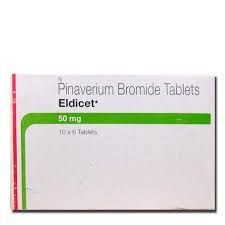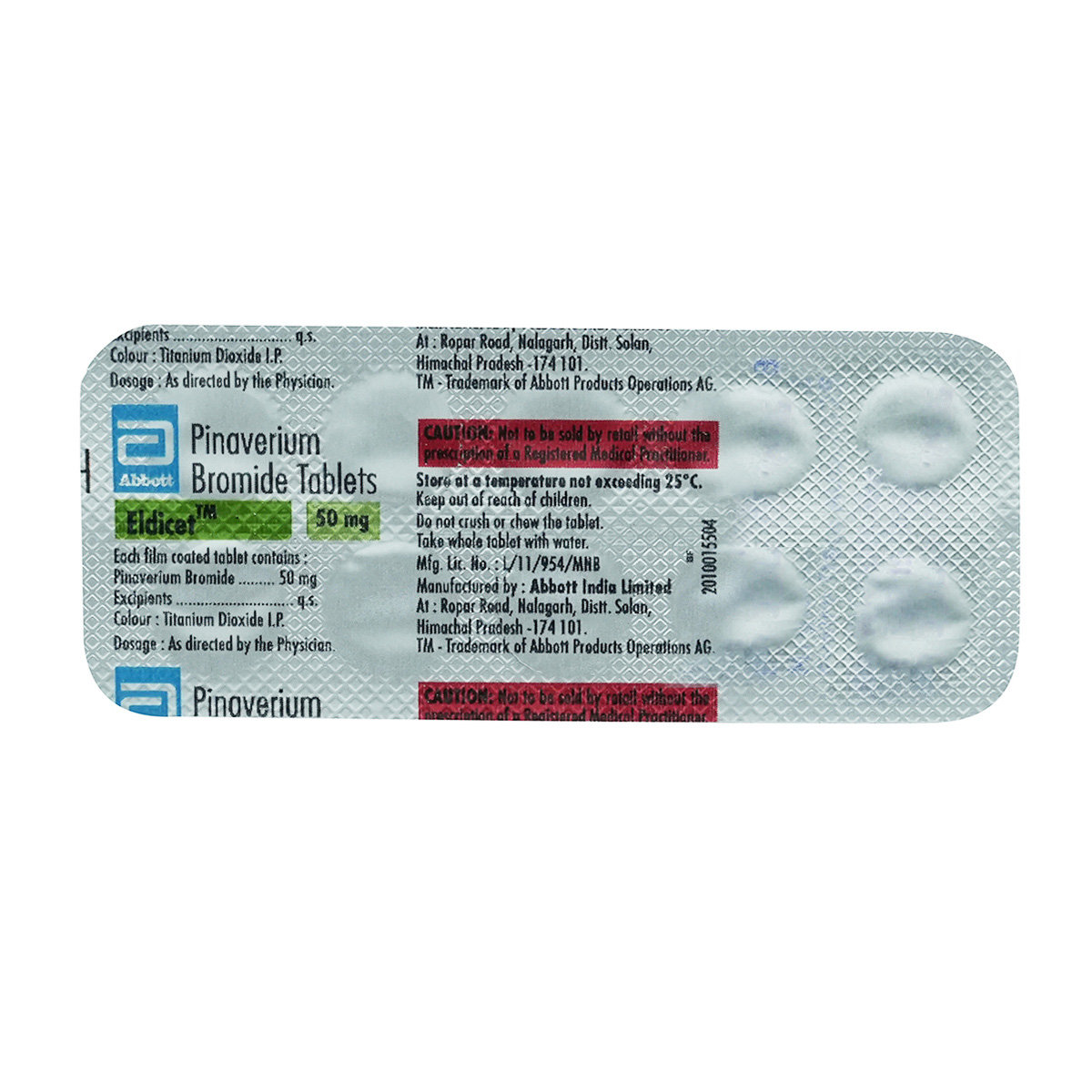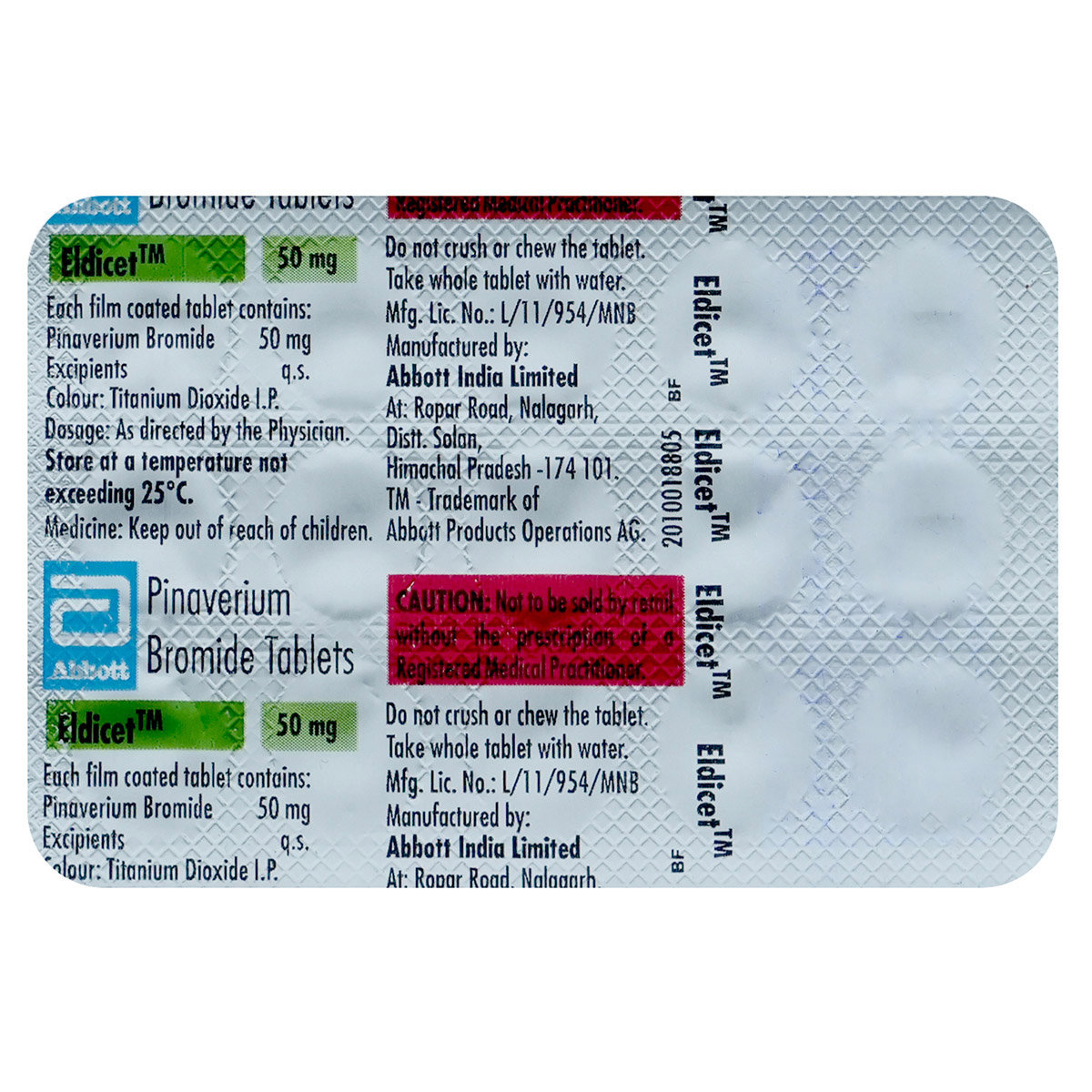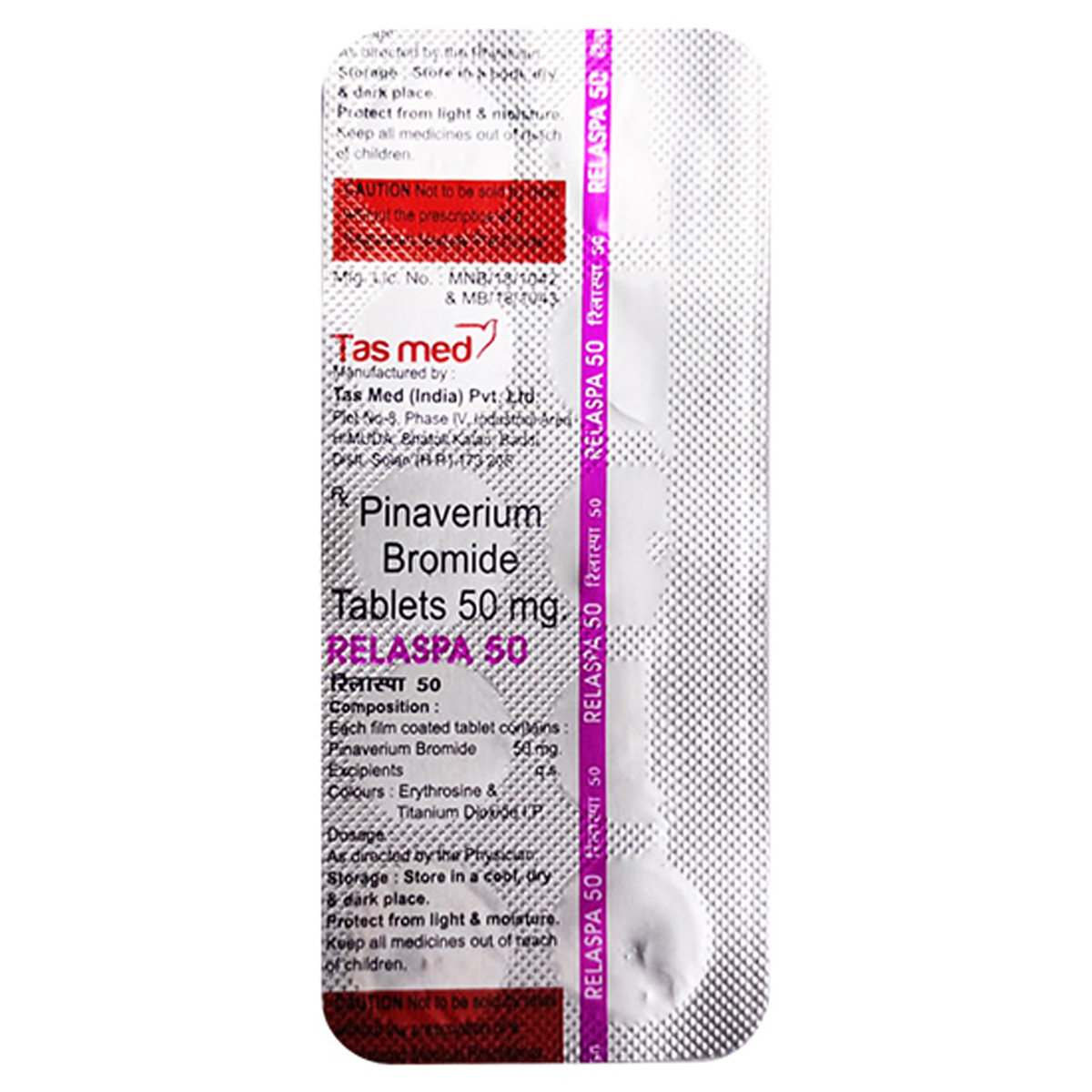Pinaverium
About Pinaverium
Pinaverium is used in the treatment of irritable bowel syndrome. Irritable bowel syndrome is a common disease that affects the large intestine, causing abdominal pain, cramps, and other symptoms. The exact cause of the disease is not known.
Pinaverium contains pinaverium, which works by relaxing the muscles in your gut (intestine) and stomach. It breaks sudden muscle contractions (spasms), thus reducing cramps, bloating, pain, and discomfort. It dilates the smooth muscles present in the stomach, intestine, and cervix, thus resulting in a reduction of spasms.
You may experience common side effects like nausea, headache, constipation, abdominal pain, and heartburn. Most of these side effects of Pinaverium do not require medical attention and gradually resolve over time. However, if the side effects are persistent, reach out to your doctor.
Do not take Pinaverium if you are allergic to it. Inform your doctor before taking Pinaverium if you have a hernia. Pinaverium is not recommended for children as its safety and efficacy have not been established. Pinaverium should not be taken if you are pregnant, planning to become pregnant, or breastfeeding.
Uses of Pinaverium
Medicinal Benefits
- This Pinaverium is used to treat symptoms of irritable bowel syndrome, including irregular bowel movements (e.g., constipation or diarrhoea), stomach pain, and bloating.
- It is also used for symptoms associated with other intestinal diseases (involving the bile duct and gallbladder).
- It breaks sudden muscle contractions (spasms), thus reducing cramps, bloating, pain and discomfort.
- It dilates the smooth muscles present in the stomach, intestine, and cervix, thus resulting in a reduction of spasms.
Directions for Use
- Take Pinaverium with food or as advised by a doctor.
- Follow your doctor’s recommendations on the dosage and timing of this medication to achieve optimal results.
- Swallow Pinaverium as a whole with a glass of water.
- Do not crush, chew, or break it.
Storage
Side Effects of Pinaverium
- Nausea
- Headache
- Dry mouth
- Constipation
- Abdominal pain
- Heartburn
Drug Warnings
- Do not take Pinaverium if you are allergic to Pinaverium, or any other ingredients present in it.
- Before taking Pinaverium inform your doctor if you have glucose-galactose intolerance because it may lead to a risk of damage upper gastrointestinal tract (oral cavity, salivary gland, stomach, intestine).
- Inform your doctor before taking Pinaverium if you have a hernia.
- Pinaverium is not recommended for children, as its safety and efficacy have not been established.
- Limit intake of alcohol, as this may increase the drowsiness effect of this Pinaverium.
- Though drowsiness is very unlikely, it is advised that you take caution while taking Pinaverium.
- The effect of Pinaverium on driving is unknown because no studies have been found on this till now.
- Pinaverium should not be taken if you are pregnant, planning to become pregnant, or breastfeeding.
Drug Interactions
Drug-Drug Interactions: Pinaverium may interact with other anticholinergic/ antispasmodic medicines (hyoscine butyl bromide, ipratropium bromide, tiotropium bromide)
Drug-Food Interactions: No food interaction was found because this topic has not yet been researched.
Drug-Disease Interactions: Pinaverium should not be given to patients with hernia and allergies.
Drug-Drug Interactions Checker List:
Safety Advice

Alcohol
cautionLimit intake of alcohol with Pinaverium as this may increase the risk of drowsiness. Though drowsiness is very unlikely, it is advised to maintain caution while taking Pinaverium.

Pregnancy
consult your doctorBefore taking Pinaverium, inform your doctor if you are pregnant or planning pregnancy.

Breast Feeding
consult your doctorIt is not known whether Pinaverium passes into breast milk or not. Hence, consult your doctor before taking this medicine if you are breastfeeding.

Driving
cautionIt is not known whether Pinaverium affects your driving ability. Do not drive if you can not concentrate after taking this medicine.

Liver
consult your doctorPinaverium is considered safe for use in patients with liver disease. However, if you have liver problems, consult your doctor before using this medicine.

Kidney
cautionPinaverium to be taken with caution, especially if you have a history of kidney diseases. Your doctor may adjust the dose based on your condition.

Children
unsafePinaverium should not be used by children, as efficacy and safety have not been established.
Habit Forming
Diet & Lifestyle Advise
- It is advisable to drink plenty of fluids and stay hydrated while taking this Pinaverium.
- Exercising regularly helps in muscle stretching so that they are less likely to spasm, tear, or sprain. Mild exercises such as jogging and walking are helpful for muscle stretching.
- Massages can also be helpful.
- Avoid freezing and hot temperatures.
- Avoid wearing tight-fitting clothes. Instead, wear loose garments.
- Rest well, and get plenty of sleep.
- To avoid developing pressure sores, change your position at least every two hours.
- Hot or cold therapy can help treat muscle spasms. Apply an ice pack or hot pack on the muscle for 15-20minutes.
Special Advise
- Take the Pinaverium with the food. Do not take Pinaverium while lying down or just before bedtime.
Patients Concern
Disease/Condition Glossary
Irritable bowel syndrome is a common disease that affects the large intestine that causes abdominal pain, cramps, and other symptoms. It may lead to repeated pain in the stomach and changes in bowel movements. The exact cause of the disease is not known. Symptoms include bloating, abdominal pain, constipation, and diarrhoea. Few people can control their symptoms by managing their lifestyle, diet, and stress. Rest will need medicines and counselling.
FAQs
Pinaverium is used to treat irritable bowel syndrome. It works by relaxing the muscles in the gut (intestine) and stomach.
Yes, the use of Pinaverium can result in dry mouth. If you experience dry mouth, drink plenty of water. Take regular sips during the day and keep some water by your bed at night.
Keep this Pinaverium in the container it came in, tightly closed. Store it according to the directions mentioned on the label or pack. Dispose of the unused Pinaverium. Ensure children, pets, and other people do not consume it.
The most common side effects of using Pinaverium are nausea, headache, constipation, dry mouth, abdominal pain, and heartburn. If any of these side effects disturb you, inform your doctor.
The common symptoms of the disease involve abdominal pain, constipation, diarrhea, gas, loose and watery stool, urgent need to have a bowel movement, and a hard time passing the stools. People with this disease may have a poor diet.
It is advised people with irritable bowel syndrome avoid food that stimulates the intestine and causes diarrhoea. It includes alcohol, coffee, and other products that contain caffeine. It also includes dairy products like milk, cheese, and ice cream. Chocolate, nuts, and foods with high sugar may also be avoided.






